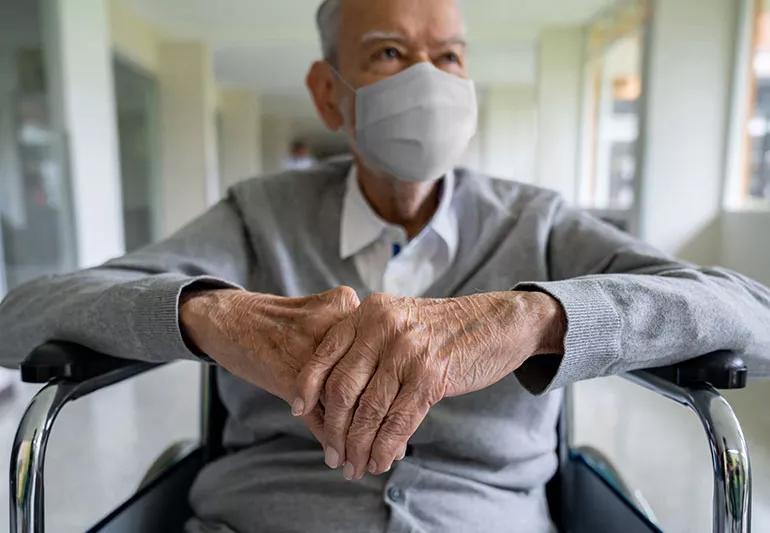The short answer from a palliative care expert

Image content: This image is available to view online.
View image online (https://assets.clevelandclinic.org/transform/c367fd22-e585-4316-8670-19d8acbe6fe3/HospicePalliative-1223488573-770x533-1_jpg)
An older person sitting in a wheelchair wearing a mask
A: Living with a serious illness can be overwhelming which is why it’s important to understand your options for additional support. Both hospice and palliative care provide care with an aim to improve quality of life.
Advertisement
Cleveland Clinic is a non-profit academic medical center. Advertising on our site helps support our mission. We do not endorse non-Cleveland Clinic products or services. Policy
People often confuse palliative care with hospice. Both types of care ease the symptom distress severe illness can bring — pain, fatigue, depression and more.
The difference is in the overall approach to care. You can begin palliative care for a serious illness while also receiving curative or life-prolonging treatment. Palliative specialists work in tandem with other medical specialists as an added layer of support to have you feel as well as possible.
In contrast, hospice is comfort care when life-prolonging care is no longer beneficial or desired. Hospice is interdisciplinary care provided by physicians, nurses, social workers and chaplains to support people and their families at the end of life.
Palliative care — originally developed to help those who have cancer — is now used to help people living with a wide range of diseases, including heart failure. Research shows that palliative care can even extend life.
Similarly, any person entering the final phase of life can receive hospice care wherever they are located, whether in their home, nursing facilities or even specialized hospice facilities.
Both types of care will improve the person’s quality of life and will provide caregivers with emotional and practical support. So just because you or your loved one must deal with a chronic illness doesn’t mean you have to live with discomfort, pain or anxiety.
Advertisement
If the need should arise, don’t hesitate to seek care from a palliative care specialist or — when it’s time — from hospice.
— Palliative medicine physician Kyle Neale, DO.
Advertisement

Delivered every Tuesday!
Sign up for our Health Essentials emails for expert guidance on nutrition, fitness, sleep, skin care and more
It's a letter about the news!
Learn more about our editorial process.
Advertisement
Palliative care offers a comprehensive network of support at any stage, from diagnosis to treatment and beyond
This role designates a stand-in partner when you can’t make medical decisions for yourself
Sometimes, you need help navigating your grief and the dying process
Most recommended precautions center around minimizing bruising or swelling
Even one drink can have an impact on your cognitive function leading to slurred speech, blurred vision and impaired memory
Understand who may (and may not) benefit
Type 2 diabetes isn’t inevitable with these dietary changes
Applying a hot or cold compress can help with pain
Pump up your iron intake with foods like tuna, tofu and turkey